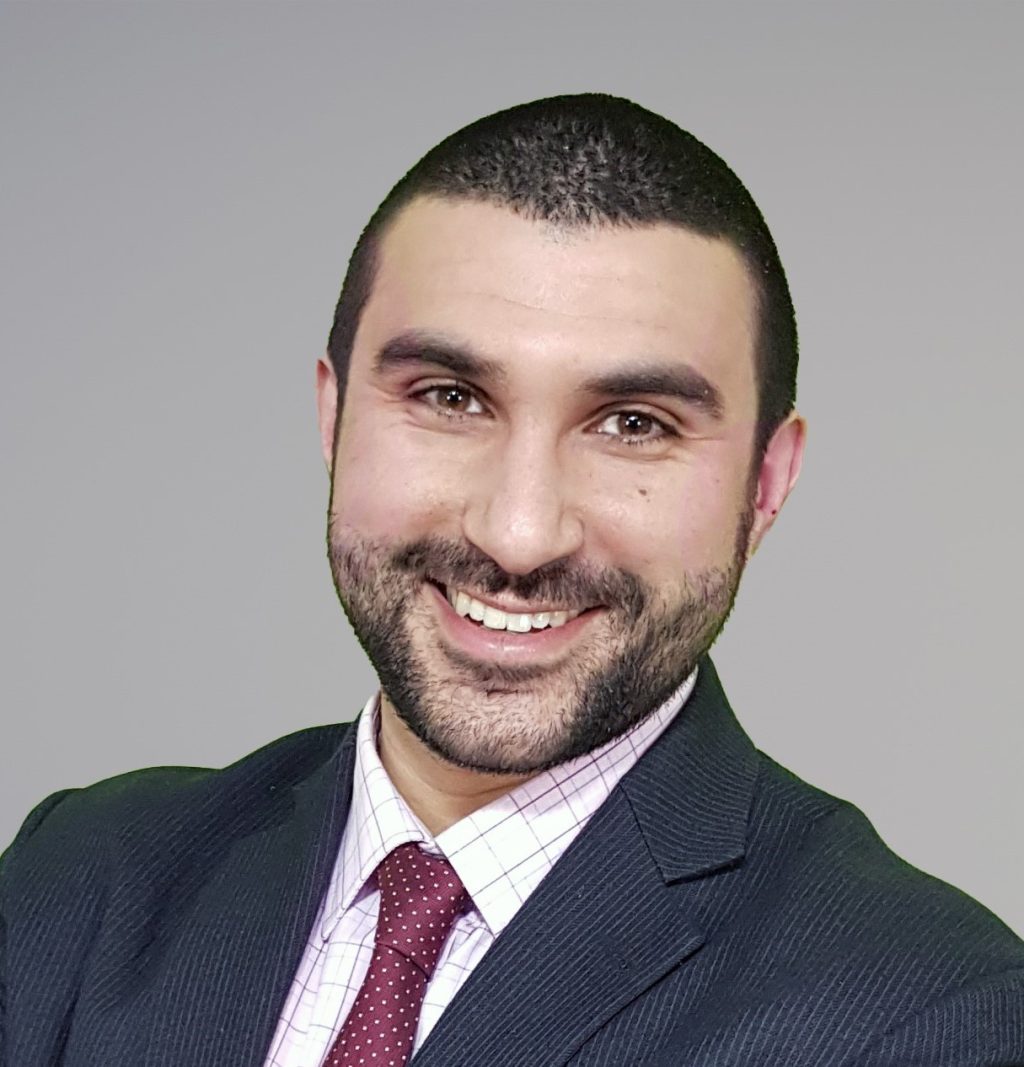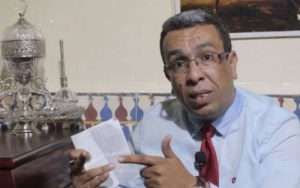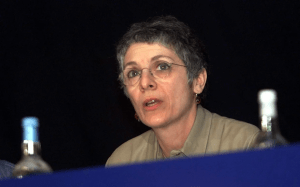Saied’s Escalated Crackdown Faces Time Pressure

Armed with US recognition of his ‘elections’, Saied ramps up crackdown. But the clock is ticking and if it all ends in tears many will point the finger at him for not being more servile to the UAE and KSA and their conditions for financial aid
When Tunisia’s President Kais Saied suspended Parliament and the nation’s constitution, and then proceeded to seize power on 25 July 2021, the momentum was overwhelmingly in his favour. Army tanks shut down the parliament building, the powerful trade unions (the ‘UGTT’) announced their firm support, and even elected political parties such as the centre-left Tayyar Dimoqrati announced their backing for Saied’s measures.
Apathy towards the democratic transition that had failed to deliver tangible improvements in the living standards of ordinary citizens was so widespread, that very few Tunisians immediately responded to the call of the largest elected party Ennahda to rally to the parliament building in order to try to force the army tanks into backing down.
Saied proceeded to announce in November 2021 that he would rule by decree. He then dragged political opponents before military courts. He then unilaterally wrote a new election law in the beginning of the following, unilaterally wrote a new constitution a few months later, swiftly held a ‘referendum’ soon after.
However, despite his apparent dominance and speed with which he was able to implement his will in Tunisia, Saied remained hampered by two difficult obstacles.
The first of these obstacles was the absence of international recognition and the relentless international rebuke in public statements from the EU and the US White House. Both insisted on the ‘return of a democratic process’ in what was a clear denunciation of Saied’s measures and a rejection of his assertions that he had acted in line with the wishes of ordinary Tunisians. Saied’s frustrations with the response of the international community was such that he lashed out on more than one occasion denouncing ‘foreign interference’ in Tunisia.
Aside from statements, Tunisia found itself uninvited to the ‘Democracy Summit’ in Washington. The Francophone summit where Saied had hoped to project an image that his authority was internationally-recognised, had to be postponed after invited heads of state expressed concern over the situation in Tunisia in a statement that said that the delay was to “allow Tunisia to host the summit the best possible conditions”.
However, the primary reason for Saied’s frustrations over international recognition had to do with its impact on his ability to secure finances. Despite being lauded for his toppling of the democratic transition by the UAE and Saudi Arabia, neither of these Gulf states decided to pour money into Tunisia in the manner they did in the immediate aftermath of Sisi’s coup in Egypt. The general expectation among Saied’s allies was that his measures would result in a sudden influx of Gulf money that would help him alleviate some of the country’s economic woes and thereby help him to win popular support for his authoritarian rule. However, neither Abu Dhabi nor Riyadh were immediately inclined to lend financial assistance. Saied’s frustrations were compounded when Bin Salman handed out billions in aid to Pakistan and Egypt during a summit in Riyadh that Saied had also sent his prime minister to attend in order to secure for financial support.
There are three possible reasons for Riyadh and Abu Dhabi’s aversion to financially assist Saied despite their media outlets publicly celebrating his toppling of the parliament. The first reason has to do with the matter of international recognition. Biden’s cold shoulder and frosty relations with America’s Gulf allies had resulted in a more cautious approach by the Saudis and Emiratis towards issues where Washington had taken an open position. Biden had made clear his disapproval of Saied’s coup, and neither Riyadh and Abu Dhabi were inclined to antagonise him further.
The second reason possibly has to do with neighbouring Algeria. Although Algeria’s government rarely expresses its position directly, concerns were expressed in Algerian media over the ‘meddling’ of Gulf countries in areas that were considered Algeria’s sphere of influence. Neither the UAE nor Riyadh were inclined to provoke Algeria, and Saied swiftly sought to communicate to Algeria that his policies would not damage the close relationship between the two countries. It is in this context that many argue that Saied’s antagonising of Morocco on the issue of the Western Sahara is part of his bid to appease Algiers, and also a reflection of the extent of Algiers’ concern that Saied had to compromise Tunisia’s neutrality in order to demonstrate his commitment to easing Algeria’s concerns over Tunisia’s political trajectory.
“Neither the UAE nor Riyadh were inclined to provoke Algeria, and Saied swiftly sought to communicate to Algeria that his policies would not damage the close relationship between the two countries. It is in this context that many argue that Saied’s antagonising of Morocco on the issue of the Western Sahara is part of his bid to appease Algiers”
The third possible reason has nothing to do with international dynamics, and everything to do with the reason why the UAE supported Saied’s overthrow of the democratic transition in the first place. The UAE have made no secret of their hatred of the Muslim Brotherhood. In Tunisia, the most successful party in the parliamentary elections has been Ennahda who are considered part of the Muslim Brotherhood. There is a prevalent perception that the UAE wants to see the Muslim Brotherhood imprisoned as they were imprisoned in Egypt. It is in this context that a possibility has been touted that the UAE is making any financial assistance contingent upon Saied imprisoning Ennahda’s leaders. Saied’s allies have suggested in the past that the reason he has been unable to do so is due to the army’s concern that doing so would trigger domestic unrest and also punitive measures from Washington.
The real reasons elections must be held
It is in the context of needing to secure international recognition that Saied held his ‘elections’. The purpose of the elections was not to secure a popular mandate or allow Tunisians to choose their representatives. Instead, the ‘elections’ were about offering an avenue for Washington and the EU to recognise his authority in the same manner they recognised Sisi’s authority when he held ‘elections’ in the year following his coup. Saied’s ‘elections’ were about offering an avenue for the international community to dismiss the legitimacy of parliament in favour of a new ‘legitimacy’ of Saied’s authority. Tunisians understood this, and this is why only 8.8% turned out to vote.
Saied however is undeterred by the low turnout, and it is in this spirit of his pursuit of international recognition that he firmly believes his elections to be a success following the White House statement declaring them as ‘an essential initial step toward restoring the country’s democratic trajectory’. The statement represents an international recognition of his election process and the dissolution of the elected parliament of 2019, and Saied capitalised on this recognition by moving swiftly to imprison former Prime Minister Ali Laareydh from Ennahda, bring charges of ‘terrorism’ against the leader of the main opposition leader Nejib Chebbi, issue an arrest warrant for another Prime Minister Hichem Mishishi, and expedite cases brought against a number of other opposition figures.
READ Tunisians head to the polls again, Saied plays down crisis
However, Saied faces a second and more challenging obstacle to securing the finances he desperately needs to tackle the problems that plague Tunisia’s economy. Although international recognition is a major win for Saied, it does not solve his more immediate problems regarding growing discontent over his handling of the economy.
Where Saied might have hoped for aid from the IMF, negotiations have stalled as the parties struggle to agree on a viable economic plan. Tunisia has failed to implement the previous agreements, and the IMF are insisting on measures that it considers necessary, but that Tunisian policymakers know will be unpopular. Saied however has a more complex problem in his negotiations with the IMF. The main reason that Tunisia has been unable to implement any IMF deal is that the powerful trade unions (the ‘UGTT’) have strongarmed every government since 2011 with threats of general strikes. It is in this context that the IMF have sought to include the UGTT in the negotiations. Saied however is loathe to do so as he continues to wrestle with the UGTT who, although they firmly support Saied’s toppling of Parliament and suspension of the constitution, are insistent that Saied agrees to share power with them rather than monopolise it on his own. Saied and the UGTT are locked in a power struggle as Saied has sought to annul the re-election of the UGTT’s Secretary General Noureddine Tabboubi, and also seen his loyalists take control of key organisations within the UGTT such as the farmer’s union. Saied remains concerned that the IMF negotiations are framed in a manner that empowers the UGTT at a time in which he is seeking to subjugate them.
Therefore, although Saied will consider international recognition of his ‘elections’ a victory, and although he is now more emboldened in his crackdown on opposition, he is aware that time is against him as Tunisians become louder in expressing their discontent with his handling of the dire economic situation. Saied is not under any immediate threat at the moment. However, he is aware that the opposition strategy is one of waiting until the population tire. Saied’s inability to sweep up the opposition in the manner Sisi did in Egypt suggests he does not have full control of the state’s institutions in the way Sisi had, and therefore may struggle to contain any serious outbreak of popular protests. Although the opposition are unpopular, they expect that any fallout between Saied and the UGTT, or outbreak of serious protests, will propel them back onto a negotiating table whereby they might be able to secure a negotiated settlement that might restore a democratic transition. For now however, Saied will be buoyed by his progress and hope that US recognition of his ’elections’ encourages his Gulf allies to provide the urgent finances he needs.
Sami Hamdi is the Editor-in-Chief of the International Interest. An experienced geopolitical risk consultant.He has extensive experience in the MENA region, having been a television reporter and talk-show host for over 10 years
Want to chase the pulse of North Africa?
Subscribe to receive our FREE weekly PDF magazine













